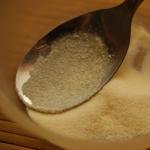1. Bad breath
Although pregnancy is not directly linked to bad breath, the link may be indirect - for example, dental changes may be at the root of the problem.
During gestation, the female body requires a much larger amount of calcium, because it should be enough for two. If there is not enough calcium coming from the outside, the emerging and actively developing organism will use calcium from maternal organism. As a result of this, the accompanying bad smell from mouth.
If calcium levels are fine and not detected, bad breath can be related to foods such as garlic, onions, beans, and many others.
Pregnant women should brush their teeth at least two to three times a day. Before brushing, rinse your mouth to loosen plaque on your teeth. After brushing your teeth, rinse your mouth with an alcohol-free mouthwash. Chewing ginger or mint leaves can also help ease bad breath.
2. Body odor
Perfume, deodorant, and daily showers - all these measures may not be enough to get rid of bad smell body. With increased fluid retention, hormone activation, and an increase in basal body temperature, body odor can increase dramatically during pregnancy.
This problem can be dealt with by changing your diet, keeping the area well ventilated, and switching to a stronger deodorant. In the diet, it is worth reducing the amount of animal products and spicy foods. If the diet includes onions and garlic, this also contributes to a change in body odor.
Do not forget that during pregnancy, the sense of smell becomes more sensitive, and the smells that you clearly feel may not be noticeable to others.
3. Chapped lips
Growing fruit demands everything more liquids. In addition, fluid is needed to create amniotic fluid and there is an increase in blood volume. During pregnancy, a woman should drink at least 2 liters of water per day so that there is enough fluid to form a physiological lubrication of the epidermis and the skin looks healthy. Lack of fluid can cause the skin of the lips to crack.
Treating chapped lips requires three coordinated actions. The first is to drink more water - this is how we eliminate the problem from the inside. The second is an external way, pregnant women can use lipsticks or other lip lubrication products to instantly increase hydration. The third step is one of the most important: refrain from licking your lips and repeat steps one and two.
Cracked lips can also occur on later dates pregnancy as a result of an increase in blood volume. This increase in blood volume can cause the nasal passages to swell, which in turn can lead to nasal congestion. Breathing through the mouth leads to overdrying of the lips and, as a result, cracks may appear. In this case, you can use saline nasal sprays to make nasal breathing easier. It is also a method of dealing with chapped lips.
4. Acne and on the face during pregnancy
Skin changes during pregnancy are common signs during pregnancy. All hormonal changes that occur with the expectant mother affect appearance, woman's skin moisture level. These changes can lead to increased skin sensitivity, resulting in an increased response to conventional skin care products. Since the composition of the epidermis and its sensitivity change, acne and acne may appear as a reaction to external stimuli and are caused by clogging of the pores of overdried skin.
During pregnancy, a woman may experience a decrease in the production of a protective lubricant on the skin of the face. One of the methods of dealing with such a nuisance, as it is not strange, can be the application of oil (olive, sea buckthorn, etc.)
Try swapping out your facial cleansers and lotions for those designed for dry and sensitive skin.
If skin problems continue to bother you, consult a dermatologist.
5. Discharge from the nipple
Pacifiers are designed by nature for one purpose: to feed the baby. During pregnancy, colostrum can be released from the nipples as early as the beginning of the second trimester. Colostrum is produced in the breast from the first weeks of conception and in the first days after the birth of the baby.
However, there may be a discharge from the nipple that is different from colostrum - it may look clear, white, yellow or greenish and this is completely normal. If the discharge is red, reminiscent of blood, brown or black, has an unpleasant odor, is discharged without pressing the nipple, you should definitely see a doctor.
6. Vascular networks on the skin
The increase in blood volume and circulation during pregnancy puts extra stress on the capillaries that are under the skin. This can result in spider veins appearing on the skin.
For some women, spider veins are hereditary and cannot be prevented during pregnancy. The reason for the appearance of "asterisks" may also be a deficiency of vitamin C, in this case it is worth including more in the diet. natural products containing this vitamin.
Spider veins can be treated with laser treatments, but they are better and safer after childbirth.
7. Weak and brittle nails
Lack of fluid in the body can weaken nail plates and make them more brittle. As a rule, this is temporary and everything returns to normal after the woman's hormonal levels are restored.
In order for brittle nails not to cause discomfort for 9 months, pay attention first of all to the household chemicals that you use. washing powder, dishwashing detergents, etc., in contact with the skin of the hands and nails, exacerbate the problem. Use gloves while doing housework.
Use moisturizers for your hands, they will help restore the water composition of the skin and nails. Weak and brittle nails, just drier than strong nails so moisturizing several times a day can make a big difference.
Three to six months postpartum is usually enough for the nails to regenerate.
8. White furred tongue
During pregnancy, there are quite a few changes in the female body. One of the changes is the growing need for water or hydration. One of the signs of dehydration is a white coating on the tongue. Typically, this plaque is a layer of bacteria or dead cells on the surface of the tongue. Usually, it is enough to properly clean the tongue and drink enough liquid for this plaque to go away.
The white color of the surface of the tongue can be caused by inflammation of its papillae. The papillae are like miniature fingers. When they swell, they acquire White color. In addition to dehydration, alcohol consumption, smoking, breathing through the mouth and fever can provoke a white coating.
In rare cases, a white coating can signal more serious problems, such as red flat and. It is best to consult with your obstetrician to learn more about what causes a white coated tongue.
Everyone knows that during pregnancy, a woman undergoes a complete hormonal restructuring of the body. But few people know that this restructuring can lead to a change in smell. In this article, we will tell you why an unpleasant body odor appears in a pregnant woman, how to eliminate it, etc.
How does the smell of a woman change during pregnancy?
Unpleasant body odor of a pregnant woman
If hormones make all the systems of your body work a little differently than before pregnancy, then one day, the smell of your own body may seem unfamiliar to you. And, unfortunately, not always pleasant.
You shouldn't worry too much about this. As soon as the pregnancy is over, everything will definitely return to normal. For now, you just need to wait and get used to how you smell now. Of course, there are also suspicious smells that should make you wary.
Causes of bad body odor during pregnancy
The fact is that during pregnancy, a woman's body is forced to weaken its immune defenses so that the developing fetus does not get rejected, which, whatever one may say, turns out to be an alien formation for the mother's body. And sometimes an unpleasant odor, for example, from the vagina or from the mouth of a pregnant woman, may indicate the activation of pathogens that cause all kinds of inflammatory processes, for example, gingivitis in the mouth or thrush in the vaginal area. In any case, if you have suspicions that something is wrong in your body, share them with your doctor and, if necessary, take tests.
If the tests turn out to be not too good, it is important that you are able to detect the problem in time and begin appropriate treatment. During pregnancy, even a weak inflammatory process of an infectious nature is very undesirable for the health of the unborn baby.
How to eliminate bad breath during pregnancy?
Hormones are the cause of bad breath
If the doctor does not find any diseases in the pregnant woman, then the same hormones are the cause of the unpleasant odor. How and what you will smell like is difficult to predict in advance. For each woman, this happens very individually and the smells do not always match. Quite often, the smell of warm milk emanates from a pregnant woman. And sometimes a woman or her husband finds it difficult to determine their feelings at all, and simply say that the smell of the body reminds them of something childish or tasty, perhaps sweet.
Unfortunately, there are not too pleasant smells during pregnancy. For example, a pregnant woman's body may emit a strong sweat odor even though she does not sweat at all and showers regularly. Sometimes it seems that vinegar was spilled nearby, and sometimes even urine.
Alas, even a doctor cannot help you in this case. A riot of hormones during pregnancy is a great and irresistible force.
How to get rid of body odor during pregnancy?
The presence of an unpleasant odor does not relieve you of the need to observe the rules of personal hygiene, and during pregnancy - especially carefully.
- Shower morning and evening, consult your doctor, and take warm (but never hot) baths with your favorite aromatic oils.
- A preliminary consultation with a doctor is necessary because some aromatic oils are contraindicated during pregnancy.
- The smell from the armpits can be partially neutralized with the help of a deodorant, only during pregnancy you need to use those varieties that do not contain fragrances. It is important not to mask the unpleasant body odor, but to remove it.
In the end, if someone does not like something, let, as they say, pass by. Pregnancy and the future birth of a child are worth suffering small temporary inconveniences.
Remembering the first signs of pregnancy, heightened sensitivity, people mention first of all. Indeed, the sense of smell early dates becomes excessive.Any smell can cause nausea and vomiting in the expectant mother, even those that she used to like.
Women in position are annoyed by: the aromas of food, especially boiled or roasted meat, the smells of perfume, tobacco, alcohol, and much more.
Did you know that the reaction rate in pregnant women becomes about the same as in professional racers?
Why is this necessary and why did nature arrange it this way? Everything is very simple. A woman, by definition, is very vulnerable and is obliged to react to any threat immediately in order to protect herself and the child. If I cannot move quickly, I must see or feel the danger faster and start acting earlier. This is the logic of survival worked out by generations of people and evolution itself.
But side effect such a gift of evolution, has become an extremely difficult life in the first months in the position. Later, month after month, the susceptibility decreases, but still, until the very birth, the reactions can be unexpectedly strong when confronted with certain aromas.
In fact, only paints and varnishes and household chemicals can harm the baby.
Of particular concern is the smell of paint. During pregnancy, anyone can be forced to face it. future mom, you can’t forbid neighbors to make repairs, just because you are pregnant. The effect of dye on pregnancy has been associated by some studies with a higher incidence of malformations of the kidneys and urinary tract in a child. Perhaps you have heard about it, and now forcedly, at work or at home, you are faced with the problem of the inability to avoid inhalation, which already causes headaches and nausea.
Let's calm you down a bit. There is such a profession, called a plasterer-painter. This is a women's profession, and women paint the walls 5 days a week for 7 hours straight. Fertilization also occurs in them, and the first weeks pass in such conditions. And nothing, for some reason they give birth to healthy children.
Harmful aromas have an indirect effect, first you need intoxication of your body, and only then the baby will suffer, that is, you need to smell the paint intentionally, like drug addicts. The smell of paint in normal household contact is not dangerous.
If you suffer from hypersensitivity - try to avoid unpleasant odors Do not cook yourself, otherwise your appetite will completely disappear, and go for a walk while someone else is doing the kitchen. Ventilate rooms more often workplace if there is a repair somewhere and give all contacts with household chemicals to other family members.
Pregnancy and your own scent
Interestingly, most women suffer from the enzymes of their own body, in the early stages it is so painful that neither a shower nor an endless change of clothes helps.The smell of sweat during pregnancy becomes unbearably disgusting for many, their own skin smells somehow wrong, and it seems that others feel it too. As the pregnancy progresses, with the end of toxicosis, this will pass, you may even like the new aromas of your body, their appearance is just a consequence of hormonal changes.
You may notice some deviations that should make you wary:
Unpleasantly smelling discharge in a special position is a rarity. If they have an unusual character, greenish, yellow, too plentiful, cheesy white, or even frothy, you need to urgently see a doctor.
The smell from the mouth during pregnancy indicates either problems with the teeth and gums, an ENT disease, or stomach diseases.
The smell of ammonia during pregnancy is associated with protein starvation of the body and suggests that you still need to force yourself to eat at least a little, even if you don’t feel like it at all.
Very often, the smell of urine changes during pregnancy, usually due to taking vitamins, and it smells like “vitamins”. An unpleasant, strong, pungent odor of urine, its cloudy color is evidence of a possible urinary tract infection, it is worth taking an unscheduled urine test. A change in this indicator may be the norm, again, due to hormonal changes. Its rotten, sweetish aroma occurs in many pregnant women, and does not speak of any pathology.
In any case, after giving birth, you definitely won’t remember that you didn’t like the skin enzyme, but now, frequent showers and a change of clothes will help you. Use special cosmetics and detergents for pregnant women, avoid strong-smelling hygiene products and remember that any changes are just one of the symptoms that you will soon become a mother, and soon everything will pass.
After the conception of a child, changes occur in the body of a woman. The hormonal background is rebuilt, metabolism is accelerated. All this is accompanied by nausea, exacerbation of smell. During pregnancy, there is often a smell from the mouth. This can be caused by a restructuring in the body, the appearance or exacerbation of the disease. It is necessary to report the symptoms to the attending physician, he will refer the patient to laboratory tests, after which he will report the cause of the changes.
There are many reasons for bad breath during pregnancy. The doctor identifies and eliminates them in order to prevent the recurrence of the condition.
- Diseases of the oral cavity. For example, (infectious destruction of tooth tissue), (inflammation of the gums), tonsillitis (inflammation of the tonsils), diseases of the salivary glands.
- Violation . After brushing your teeth, plaque can remain in the interdental spaces, which transforms into stones.
- Gastrointestinal diseases: gastritis, gastric ulcer, enteritis. Inflammatory processes of the mucous membrane occur, which cause the reproduction of opportunistic bacteria. Their toxins and decay products cause odor.
- Liver diseases (cirrhosis, hepatitis). With an increase in the fetus, pressure on the organs increases, the disease worsens.
- Diet. The smell occurs when there is a lack of proteins, carbohydrates, vitamins, trace elements and nutrients in the diet.
- Hormonal disorders. Increased production of thyroid hormones, adrenal glands. Under their action, the composition of saliva can change, which causes the appearance of bad breath during pregnancy.
- Taking medications. These can be vitamins, antibiotics, iron preparations, hormones.
- infectious processes. Incl. arising in the respiratory system or in the upper part of the gastrointestinal tract (oral cavity, esophagus, stomach).
- Systemic diseases (diabetes).
- stress or depression. They cause an additional release of hormones, heart palpitations, active work of the digestive tract. This leads to bad breath in pregnant women.
Unpleasant odors in the first trimester
The first trimester is the most difficult for a woman, her body gets used to a new state. All resources are aimed at supporting the development of the fetus. Microelements and vitamins are delivered to it. Therefore, the mother may lack many substances. From this, teeth begin to collapse, gums are damaged.
237 07/26/2019 7 min.Oksana Shiyka
Dentist-therapist
Note! At the beginning of pregnancy, there is often a violation of the amount of hormones. Therefore, doctors prescribe replacement therapy. When taking these drugs, there is a smell from the mouth.
For some women, the appearance of pregnancy is stressful, due to which the work of the cardiovascular system becomes more frequent. The result is increased production of hydrochloric acid in the stomach. This results in an unpleasant odor.
The taste of iron in the mouth and an unpleasant odor during pregnancy - what do they indicate?
Often, bad breath during pregnancy is accompanied by a change in taste in the mouth. When the taste of iron appears, consult a doctor to rule out the disease. There are reasons for these manifestations:
- change in perception by taste buds due to changes in hormonal levels;
- the use of multivitamin complexes containing iron or a separate preparation with this element;
- damage to the mucous membrane of the respiratory system or gastrointestinal tract, these can be small wounds (tongue biting, periodontitis) or large areas of damage (stomach ulcer);
- frequent belching, esophageal reflux (passage of stomach contents into the esophagus);
- blood diseases (iron deficiency anemia);
- a sharp decrease in the amount of vitamins (hypovitaminosis - their decrease, vitamin deficiency - absence);
- poisoning, leading to a change in the perception of taste.
How to eliminate bad smell at home?
During pregnancy, treatments are limited and many drugs can cross the placenta and harm the baby. Therefore, the treatment is selected only by a doctor. Methods for eliminating bad breath in pregnant women are presented in the table.
Method
Application, description
Oral hygiene Changing toothpaste and brush, using (high pressure water jet) or for cleaning between teeth, removing plaque from the tongue, rinsing the mouth with dental solutions. Diet Adding vegetables, fruits, dairy products, meat to the diet. The absence of fatty, fried, smoked, spicy, salty foods that burden the digestive tract. Elimination of drugs The doctor reviews the list of medicines, eliminates from them drugs that can cause odor, if this does not harm the woman's health. Treatment of the underlying disease
- Treatment of caries and periodontitis at the dentist's office, additional treatment with antiseptic agents and gum gels with the permission of the doctor;
- treatment of diseases of the gastrointestinal tract with the help of sorbents, enveloping substances;
- replacement therapy with a lack of hormones;
- antibiotic therapy for infection (used means that do not pass through the placental barrier);
- changing the dose of insulin in diabetes mellitus;
- herbal teas (in the absence of allergies) from chamomile, calendula contribute better job Gastrointestinal tract, have sedative properties.
Oksana Shiyka
Dentist-therapist
Important! All drugs are permissible only after consultation with a gynecologist or dentist. It is unacceptable to independently select medications and folk remedies.
When should you see a doctor?
During pregnancy, a woman visits a gynecologist every two weeks. If there is an unpleasant smell, you need to tell him about it. There are times when you should visit a doctor immediately, without waiting for a scheduled appointment:
- the appearance of blood from the gums or mucous membranes of the oral cavity;
- a sharp deterioration in well-being (dizziness, weakness, loss of consciousness);
- change in the perception of taste or its complete absence;
- signs of an infectious disease (vomiting, diarrhea, fever);
- asymptomatic fever;
- odor from the mouth, accompanied by a change in the color of urine (dark, red) and feces (black, colorless, mixed with blood).
Possible consequences and complications
In the absence of timely treatment of the cause of bad breath in pregnant women, complications are possible, both for the woman herself and for the fetus. If you do not carry out therapy for diseases of the teeth, the infection will penetrate into the pulp, pain will appear. After some time, the bacteria will reach the roots of the teeth, there will be a risk of their penetration into the bloodstream. This will lead to sepsis (blood poisoning), due to which the mother and child will die.
Diseases of the gastrointestinal tract during childbearing develop faster, as metabolic processes are accelerated. There is a risk of bleeding of the inflamed mucous membrane of the esophagus or stomach. With an increase in the size of the fetus, compression of the liver occurs, if before that it was inflamed, the disease will worsen. This is fraught with the formation of organ failure.
Hormonal failure can lead to an uncontrolled increase in body weight, the appearance extra hair on areas of the body where they should not be. The more time passes since the onset of the disease, the more difficult it will be to restore the hormonal background.
In case of poisoning, there is a risk of passage of pathogenic microorganisms through the placental barrier. This is dangerous for the fetus, there may be a violation of the formation internal organs, vices.
Conclusion
Bad breath in women during gestation occurs frequently. If this is temporary, don't worry. When observing a symptom for a long time, it is necessary to consult a doctor to conduct a diagnosis. Prognosis of diseases found on early stages most often favorable.
During pregnancy, a powerful hormonal restructuring of the body occurs, metabolic processes change and immunity decreases. All this leads to numerous and varied clinical manifestations. Many women during this period suffer from bad breath or halitosis. It occurs due to diseases of the oral cavity, digestive system or may be associated with toxicosis. The smell itself is not dangerous for the body, but only a signal of an unfavorable state of health. It can also lead to difficulty in communicating with other people, constant discomfort.
Causes of an unpleasant odor
Halitosis in pregnant women is caused by many factors. It occurs against the background of a complex effect on the body, since there is a strong restructuring of organs and systems. The main causes of bad breath:
During pregnancy, immunity decreases, so the risk of developing diseases increases. Infectious diseases are considered especially dangerous. Due to the vital activity of microorganisms, they are often accompanied by an unpleasant odor.
Some pregnant women have specific taste needs. A number of foods that were previously not in the diet can also lead to the appearance of halitosis.
Symptom onset in the first trimester
Often the problem of bad breath appears in the early stages of pregnancy. Against the background of the restructuring of the body, immunity decreases, which leads to infection with infections. In addition, there is a deficiency of calcium and vitamin D, which leads to a change in the composition and quality of the salivary fluid. Therefore, in the first trimester, the condition of the teeth worsens, gingivitis develops and.

A woman experiences more stress, which directly affects the health of the body. When taking medications that were previously habitual, there is a risk of developing dysbacteriosis, gastritis and other disorders of the digestive system.
When to See a Doctor
During pregnancy, medical supervision is required at every stage of fetal development. Contact a gynecologist and undergo regular consultations, examinations are necessary from the first weeks after confirmation of pregnancy. The bad breath may be normal if it passes quickly in the morning and disappears after brushing your teeth.
If there are side symptoms, such as nausea, vomiting or colic, hyperthermia, then a visit to the doctor is required. This allows you to detect the cause of halitosis and other pathologies, take action in time. During the consultation, it is advisable to clarify how to eat right during this period in order to avoid mistakes and correctly adjust the diet.
In the first trimester, the smell is often iron-like. This appears due to an excess or lack of iron in the body, so anemia occurs in pregnant women.
Treatment
Since bad breath is multifactorial in nature, the treatment for halitosis differs depending on the cause. To get rid of the problem is prescribed as preventive actions(hygiene, nutrition and lifestyle), and conservative therapy, especially if the pathology is accompanied by other symptoms.
Due to poor hygiene
Poor or improper oral hygiene is a common cause of halitosis. If there are no complications, it is easily eliminated by correcting daily habits, with minimal medical intervention. Ways to solve the problem:

If there are serious problems with the state of the dentition, it is not recommended to carry out prosthetics during pregnancy, since anesthesia harms the fetus.
morning sickness
Nausea and toxicosis are very common in women in the first trimester, they can persist for a long time, depending on the characteristics of the body. It is quite difficult to avoid this trouble, but you can minimize the harm to the body. After morning or evening nausea, you should rinse your mouth. This allows you to eliminate the accumulation of food particles in the tooth pockets and reduce the likelihood of an unpleasant odor, you can use water, to enhance the effect, add a little mint or 1-2 drops of lemon juice to the liquid.

During nausea, a lot of water is lost and must be replenished to avoid dehydration. You should drink a glass of water after the next bout of vomiting, drink at least 2 liters of fluid during the day. To reduce the risk of vomiting, it is recommended to increase the number of meals, reducing their volume, and also immediately after waking up, eat a piece of chocolate or bread to raise blood sugar.
It is impossible to get rid of this problem with medication, but doctors recommend using breathing exercises and avoiding any contact with unpleasant odors and tastes, which cause another attack of nausea.
Food
Monotonous, poor-quality nutrition during pregnancy can not only cause bad breath, but harm the fetus. Nutrition recommendations:

The diet itself also plays an important role. During pregnancy, you need to include in the daily menu: fish and seafood, seasonal vegetables and fruits, dairy products, olive oil and cereals.
If you have problems with the gastrointestinal tract, you need to consult a specialist. Most medications to normalize digestion have side effects, so you can not choose your own medicines for treatment.
lack of calcium
Calcium is important for dental health, so taking it is a must during the 1st and 2nd trimesters of pregnancy. It is better to take the element as part of the drug, for example, along with vitamin D. You can also replenish calcium with the help of products, for example, fish, cottage cheese or milk. For the normal development of the fetus, you need to consume at least 1500 mg daily, during the period breastfeeding- 2000 mg.
Vitamin D3 directly affects the absorption of calcium in the body. You can make up for its deficiency by taking ready-made preparations, food, or by increasing its production by being in the sun. However, it is dangerous by exposure to ultraviolet radiation, so it is not recommended to sunbathe for a long time, visit a solarium.
Dental pathologies
During pregnancy, in 70% of cases, the condition of the teeth, gums and mucous membranes of the oral cavity worsens. This is fraught not only with an unpleasant odor, but also with the development of a secondary infection, such as periodontitis or pulpitis. For details on how to treat pulpitis during pregnancy, see. During pregnancy, treatment is complicated by the inability to use the full range of methods, since it is impossible to use anesthesia and X-ray, some types of fillings.
It is recommended to wait until the beginning of the 2nd trimester, since at this time the list of acceptable therapeutic and diagnostic measures is expanding. In the early stages, under the supervision of a doctor, symptomatic medical preparations for relief of pain, bleeding and other manifestations. If there are early carious formations, it is better to use, which is safe in the early stages.
Prevention
To avoid the appearance of bad breath during pregnancy, it is important to follow a simple prevention. Effective preventive measures:

If halitosis is accompanied by any symptoms (colic, sore throat, runny nose, glossitis or stomatitis), you should contact your doctor as soon as possible.
Folk remedies
Home medicine methods can also help fight bad breath during pregnancy. Medicinal herbs are used in their preparation. essential oils, which have an antiseptic effect, wound healing and strengthening effect. However, folk remedies cannot eliminate halitosis against the background of serious pathologies, they give only a temporary effect. Simple and effective recipes:

Alternative methods of treatment do not replace conservative therapy, therefore, in case of serious diseases, you need to use prescribed medications by a doctor.
Video
For more information on the causes of bad breath and taste in the mouth during pregnancy, see the video.
Conclusion
- Bad breath or halitosis is a common problem during pregnancy. Occurs against the background of the restructuring of the body, toxicosis, malnutrition or dental diseases.
- Often the pathology occurs in the first trimester. The smell may have a taste of iron, which is associated with a lack or excess of this trace element in the body.
- You need to see a doctor if halitosis is accompanied by any secondary symptoms: colic, indigestion, fever.
- Depending on the cause of occurrence, a complex of therapeutic and preventive measures. This can be as a correction of nutrition and hygiene, as well as drug treatment. The latter is used when serious pathologies are detected, such as gingivitis or stomatitis. Read more about how to treat stomatitis for pregnant women.
- Prevention allows you to avoid strong odor at any stage of pregnancy. It consists in careful oral hygiene, a balanced diet, taking additional vitamin supplements. You also need to have regular check-ups with your doctor.





